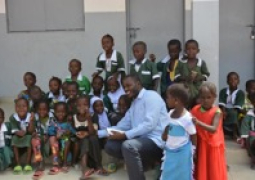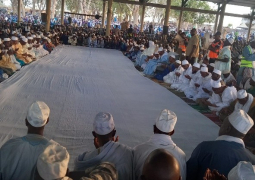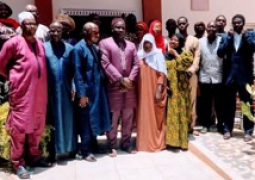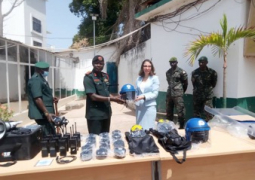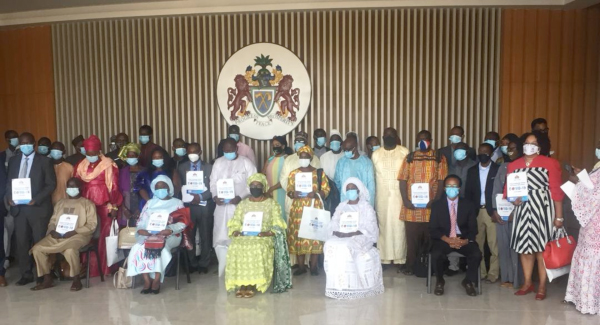
Dr. Touray was speaking on Tuesday during the launch of the first ever nation-wide study on Knowledge Activity and Practises (KAP) on Covid-19 conducted by the National Population Commission Secretariat under the auspicious of the Office of the Vice President in partnership with The Gambia Bureau of Statistics (GBoS), the University of The Gambia (UTG) and A&T Consulting Ltd.
The forum was held at Sir Dawda Kairaba Jawara conference centre.
The study is basically intended to evaluate people’s knowledge about Covid-19, their attitude towards the disease and practices during the course of the pandemic.
The study also seeks to evaluate the effectiveness of the various communication channels (medium/source) used and messages disseminated in the fight against COVID-19 and assessed people’s perceptions of what government can do to help enforce the State of Public Health Emergency Regulations.
Dr. Touray recalled that Covid-19 was first discovered in Wuhan, China in December of 2020 and due the speed at which it was spreading and the threats it posed to humanity, WHO in January of 2020 declared it a public health emergency of international concern.
She indicated that between February and the second week of March of the same year, the number of cases outside China increased at an exponential rate with the number of countries affected by the virus tripling which prompted WHO to declare Covid-19, a global pandemic.
“Since the time Covid-19 was declared a pandemic, the number of cases continues to grow globally disrupting all services and posing significant threats to the health systems which took a huge toll on the lives of people all over the world. The Gambia like other countries in Africa was not spared, as we registered our first case on March 17th 2020 and recorded the first death on March 20th 2020,” she disclosed.
To curb the spread of the virus, she added, the government of The Gambia under the leadership of His Excellency President, Adama Barrow applied various precautionary measures including the closure of the airspace as well as land and sea borders on March 23rd 2020.
“The government also issued a state of public health emergency on March 7th suspending all non-essential services among others. The State of the Public Emergency was subsequently extended till July 22nd when it was eventually lifted and in addition the Ministry of Health undertook significant measures including offering free testing for Covid-19, surveillance, contact tracing and quarantine of people infected which greatly contributed in curbing the spread of the virus in the country.”
Also speaking, Mariama Fanneh, director of National Population Commission Secretariat said on June 1st 2020, the Secretariat was commissioned by the vice president of The Gambia to conduct a nationwide Knowledge Activity and Practises (KAP) study on Covid-19.
This study, according to her, brought together critical stakeholders in the realm of search and development in The Gambia to assess people’s knowledge, their attitudes and their practices towards this deadly virus.
“In a view to identifying knowledge gaps, beliefs and behavioural patterns that may identify needs, problems and barriers to the adherence, the Ministry of Health and WHO recommendations, the study provide data for evidence-based interventions in line with critical enablers of the National Development Plan,” she added.


